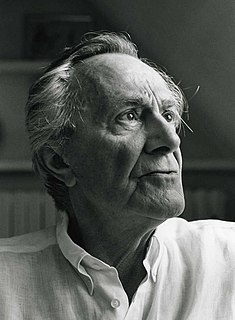 W
WRoland Gérard Barthes was a French literary theorist, essayist, philosopher, critic, and semiotician. Barthes's ideas explored a diverse range of fields and he influenced the development of many schools of theory, including structuralism, semiotics, social theory, design theory, anthropology, and post-structuralism. He was particularly known for developing and extending the field of semiotics through the analysis of a variety of sign systems, mainly derived from Western popular culture.
 W
WMaurice Blanchot was a French writer, philosopher, and literary theorist. His work had a strong influence on post-structuralist philosophers such as Gilles Deleuze, Michel Foucault, Jacques Derrida, and Jean-Luc Nancy.
 W
WHélène Cixous is a professor, French feminist writer, poet, playwright, philosopher, literary critic and rhetorician. Cixous is best known for her article "The Laugh of the Medusa", which established her as one of the early thinkers in post-structural feminism. She founded the first centre of feminist studies at a European university at the Centre universitaire de Vincennes of the University of Paris.
 W
WJean-Baptiste Dubos, also referred to as l'Abbé Du Bos, was a French author.
 W
WJulia Kristeva is a Bulgarian-French philosopher, literary critic, semiotician, psychoanalyst, feminist, and, most recently, novelist, who has lived in France since the mid-1960s. She is now a professor emeritus at the University Paris Diderot. The author of more than 30 books, including Powers of Horror, Tales of Love, Black Sun: Depression and Melancholia, Proust and the Sense of Time, and the trilogy Female Genius, she has been awarded Commander of the Legion of Honor, Commander of the Order of Merit, the Holberg International Memorial Prize, the Hannah Arendt Prize, and the Vision 97 Foundation Prize, awarded by the Havel Foundation.
 W
WJean-François Lyotard was a French philosopher, sociologist, and literary theorist. His interdisciplinary discourse spans such topics as epistemology and communication, the human body, modern art and postmodern art, literature and critical theory, music, film, time and memory, space, the city and landscape, the sublime, and the relation between aesthetics and politics. He is best known for his articulation of postmodernism after the late 1970s and the analysis of the impact of postmodernity on the human condition. Lyotard was a key personality in contemporary Continental philosophy and author of 26 books and many articles. He was a director of the International College of Philosophy which was founded by Jacques Derrida, François Châtelet, Jean-Pierre Faye and Dominique Lecourt.
 W
WJean Paul Gustave Ricœur was a French philosopher best known for combining phenomenological description with hermeneutics. As such, his thought is within the same tradition as other major hermeneutic phenomenologists, Edmund Husserl and Hans-Georg Gadamer. In 2000, he was awarded the Kyoto Prize in Arts and Philosophy for having "revolutionized the methods of hermeneutic phenomenology, expanding the study of textual interpretation to include the broad yet concrete domains of mythology, biblical exegesis, psychoanalysis, theory of metaphor, and narrative theory."
 W
WPhilippe Sollers is a French writer and critic. In 1960 he founded the avant garde literary journal Tel Quel, which was published by Le Seuil and ran until 1982. Sollers then created the journal L'Infini, published first by Denoel, then by Gallimard with Sollers remaining as sole editor.
 W
WTzvetan Todorov was a Bulgarian-French historian, philosopher, structuralist literary critic, sociologist and essayist. He was the author of many books and essays, which have had a significant influence in anthropology, sociology, semiotics, literary theory, intellectual history and culture theory.